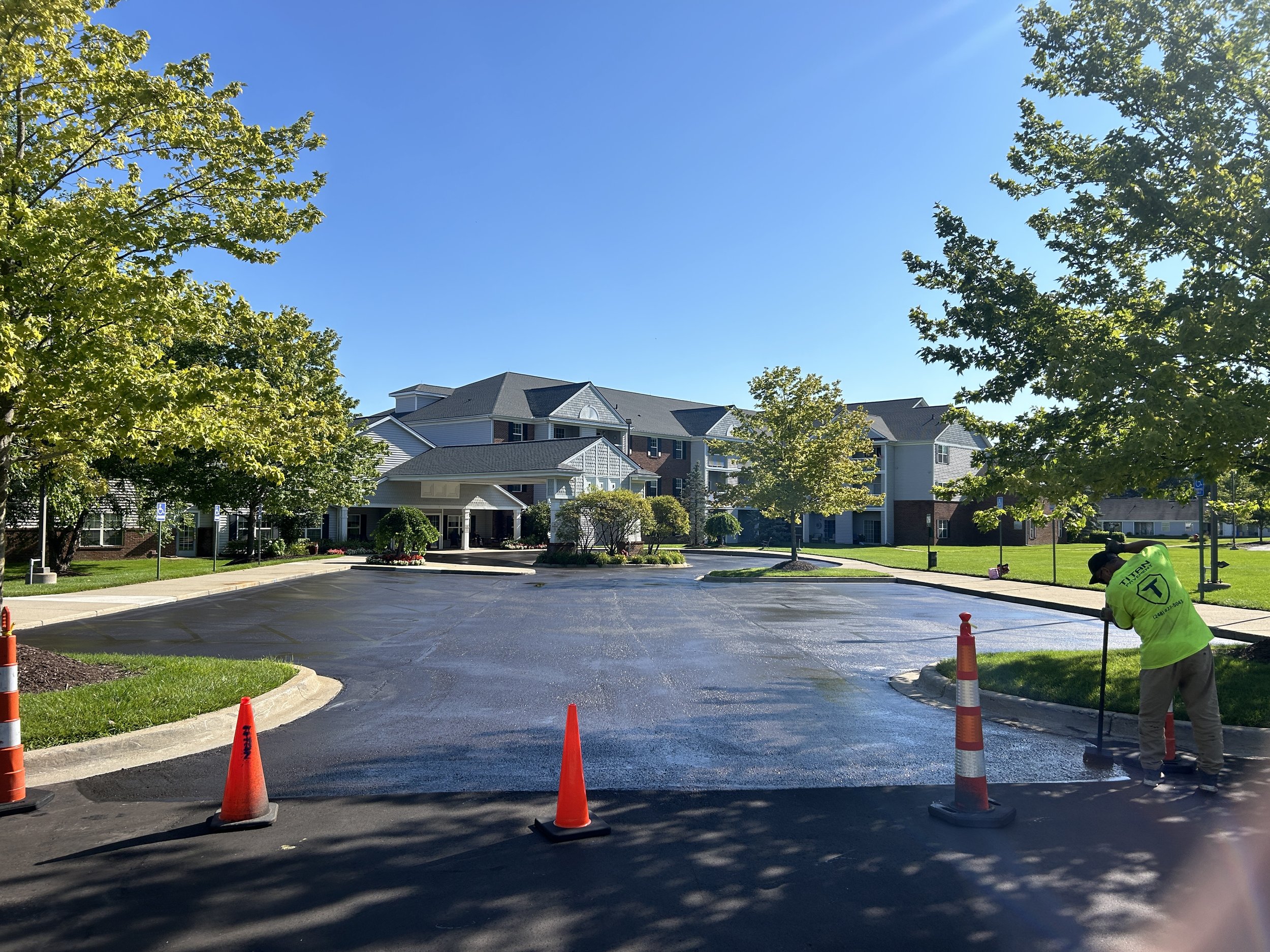What is Sealcoating? Benefits. Maintenance. Natural Happenings.
Sealcoating is the process of applying a protective coating to asphalt-based pavement to provide a layer of protection from the elements: water, oils, and UV damage. Asphalt Sealcoating is necessary for several reasons to maintain the longevity and durability of asphalt surfaces, such as roads, driveways, and parking lots.
1. Protective Barrier: Sealcoating acts as a protective barrier against water, UV rays, chemicals, and other harmful substances that can deteriorate the asphalt surface over time. Sealing helps prevent water penetration, which is a leading cause of cracks and potholes in asphalt.
2. Seals Small Cracks: Sealcoating fills in small cracks and voids on the asphalt surface, preventing them from expanding and developing into larger, more costly repairs such as potholes. Within our sealcoating service we also provide hot rubber crack filling to add to that longevity, durability, and appeal.
3. Prevents Oxidation: Exposure to sunlight and oxygen causes the asphalt to oxidize and become brittle. Sealcoating protects the asphalt from oxidation, extending its lifespan and maintaining its flexibility.
4. Weather Resistance: Sealcoating improves the weather resistance of asphalt surfaces, protecting them from freeze-thaw cycles, UV exposure, and water damage. It helps asphalt withstand the elements and maintain its structural integrity.
Overall, sealcoating is a crucial maintenance practice that offers multiple benefits, including protection against damage, improved appearance, cost savings, and increased longevity. By incorporating sealcoating into a regular 1-3 year maintenance schedule, property owners can ensure that their asphalt surfaces remain in optimal condition and continue to shield them efficiently for years.

